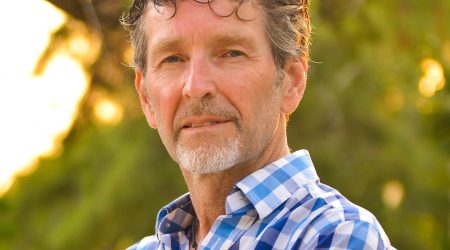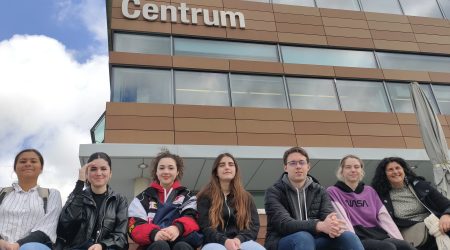John Innes Centre works with Royal Statistical Society on science training for journalists

The Royal Statistical Society has released an online version of its training programmes for science and statistics training for journalists.
Dr Sam Mugford, a post-doctoral scientist at the John Innes Centre, and Zoe Dunford, the previous Communications Manager for the Institute of Food Research and latterly the John Innes Centre, were integral to the development of the course over the last five years, and welcome provision of a free online version of the course.
Inaccurate science reporting in the national press such as coverage of the MMR-autism link made Zoe and Sam want to do something positive to improve standards of science journalism and with it the public engagement with science.
In 2009 Zoe and Sam started giving talks at journalism colleges, starting with Harlow College in Essex and the Press Association training centres in Newcastle and in London. They introduced topics like how to interpret uncertainty and how to use peer review to assess the reliability of scientific information.
“I figured I could have a much larger impact by improving the skills of the journalists that were already reaching broad audiences, rather than trying to reach out directly to the public,” Sam said.
In 2010, in the wake of a report commissioned by the Department for Business, Innovation, and Skills (BIS) working group led by Fiona Fox, BIS funded the position of National Coordinator for Science Training for Journalists. The Royal Statistical Society hosted the position in three phases with three Coordinators.
Sam and Zoe worked with all three Coordinators to deliver a training programme for journalists. Sam visited journalism colleges across the UK to deliver training sessions to journalists, trained the trainers who would work with the Royal Statistical Society with journalists, and recruited more scientists to get involved with the programme.
This year funding for the Coordinator position has been discontinued, but the Royal Statistical Society are hosting an online version of the course.
Sam said, “I want to equip journalists with the tools they need to be better science communicators. Now hopefully we’ve taken the course with to a point that it can be self-sustaining in an online version. All of the journalism colleges that we’ve dealt with have been enormously positive.”
Zoe said, “It has been a great project and will continue to be useful for new trainee journalists. Learning about the scientific process gives insights for more a balanced view as well as helping explain annoying things like why science is so uncertain.”
What they said… some quotes from students and course providers:
Student at the Newcastle PA Training Centre, “Great session, really enjoyable and informative. All based on the practicality of science and journalism in the real world.”
Alan Kay, Deputy Night Editor, The Times, “We’re still using what we learned on a daily basis.”
Paul Jones, Head of Foundation Course Training, Press Association Newcastle, “Thanks for making the long trek north. The sessions went down really well with excellent feedback from the trainees who found both presentations engaging and very useful.”
Mark Benattar, Course Leader, Fast-track NCTJ Journalism Diploma, Cornwall College, “My students loved it – our HE administrator was there and she said it was brilliant.”


